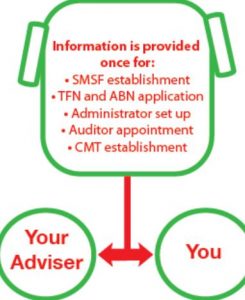By Stephen Mandigora (MEc, CFP®, CIMA®) Director, Frontier Wealth Advisers
2012 can be characterised by uncertainty across the major global markets of Europe, United States and a slowdown in China.
Australia
The changing view for Chinese prospects has led to concerns over future of the mining investment boom and prompted volatility in commodity prices. It now appears the peak in the mining investment pipeline will be lower and earlier than originally expected and will occur sometime in 2013. Some projects have been delayed or cancelled due to higher costs, lower commodity prices making others more marginal in terms of profitability.
GDP growth in Australia remained above trend with the latest reading of 3.7% for the 12 months to June. This has been driven by mining investment, however with this now slowing it will be important for Australia to have a smooth transition between the mining investments and mining exports and growth picking up in the non-mining economy. The government tax revenue is also falling, particularly in the third quarter resulting in the Labour Government abandoning their “Budget Surplus” pledge a few days before Christmas. For their part the Reserve Bank of Australia (RBA) has eased monetary policy over 2012 by a total of 125 bps to 3.00%. Surprisingly the interest rate cuts failed to make an impact on the strength of the Australian dollar, which remains over $US1.02 for most of 2012. Demand for Australian government bonds remains high and a major contributing factor given the AAA credit rating and higher yield on offer compared to other developed bond markets. The outlook for the Chinese growth momentum and US policy discussions are beginning to have impact the equity markets positively, including Australia.
2013 should be a consolidation year, while we know the problems in the global economy and solutions are starting to be implemented, further political decisiveness will be needed to continue to build market confidence, the elections next year will be a make this difficult.
China
China experienced slow GDP growth beyond expectations in 2012 as a result of lower global growth for its exports and its own political transition, with GDP growth slowing from 8.9% at start of 2012 to 7.4% by September 2012. The slow down can be attributed to weaker exports to Europe, slower global growth, the hangover from policy tightening in mid-2011 and a policy vacuum given a once in 10 year political leadership change.. However, strong signs of stability are coming through with the new leaders taking over in March 2013, set to keep China on a growth path. Already commodity prices have stabilised, the Manufacturing PMI, one of the better indicators of the Chinese economy, has started improving 50.6 as at November 2012 up from 49.2 in August.
Europe
Europe remained in the headlines throughout the year, with significant policy development and budget measures introduced to help progress the Euro-zone economy. On the positive side the European Central Bank (ECB) is now equipped with new tools to help indebted nations and there is also a movement towards a joint banking supervision framework. Greece received more than its fair share of headlines and bailout funds throughout 2012, with two major deals done on its sovereign debt. Even after the second bailout for Greece, which had a very high participation (95%), its economic situation still deteriorated due to poor implementation of the agreed budget measures. Greece failed to meet targets for this program and the possibility of a Greek exit from the European Union (EU) was looking more likely. This led to considerable market volatility, compounded by government elections punctuated by massive demonstrations. This led to the announcement of a third bailout package in November that is pointing to a forecast budget surplus target of 4.5% of GDP by 2016. Take a pause for Christmas, this thriller will continue in 2013.
Outside of Greece, Spain remains the main cause of concern given its debt numbers and deteriorating economic conditions. There has been speculation in recent months that Spain would formally ask for assistance from the EU in order to access the new facility established by the ECB. Overall, across the Euro-zone GDP growth has deteriorated and unemployment across Europe at an all-time high of 11.7% at the end of October, not looking good for the start to 2013.
The United States
2012 has had mixed fortunes for the US economy and politics. GDP growth expectation was close to 4% at the start of the year, but disappointing data for the first six months has dropped that to around 2% by year-end. Signs of the housing market recovery gained momentum from mid-year and continued to the end of the year for homebuilders’ confidence, home sales, housings starts and housing prices. The Federal Reserve announced in September an extremely aggressive form of Quantitative Easing (QE) or increased money supply to improve employment and help reflate asset prices. This involves $US40bn in Mortgage Backed Securities purchases per month, as well as the continuation of ‘twisting’ the maturity profile of its balance sheet (till year-end), worth $US45bn per month. This will continue until the employment target and other economic outcomes are achieved. This extra push puts the US in a better position for 2013.
President Obama was returned to the Oval Office resoundingly despite the polls pointing to a tight race. With the Democrats still in control of the Senate while the Republicans retained the Congress the US budget politics continues as we ever get closer to the “dreaded fiscal cliff” on 1 January 2013. This fiscal cliff is worth $US670bn or around 4% of GDP and if left unresolved will definitely leads to a US recession. Negotiations between the Republicans and Democrats continue on future tax policy and spending policies, particularly health care and entitlement reforms; just may be the US people will get a late Christmas present from their lawmakers if an agreement is reached in the 11th hour.





